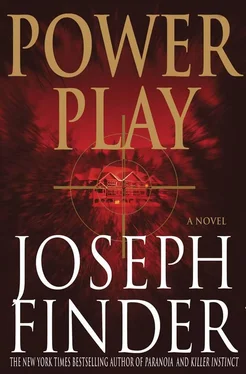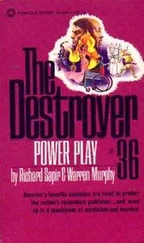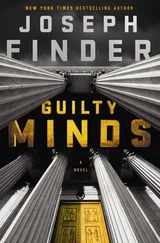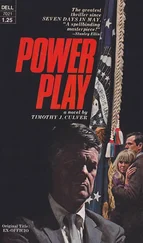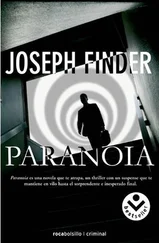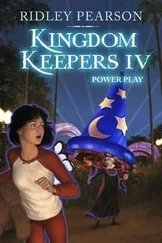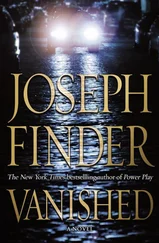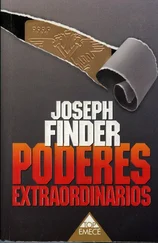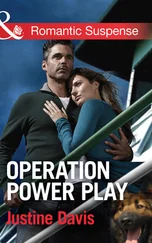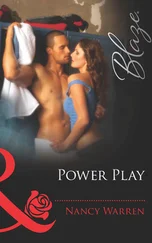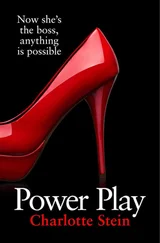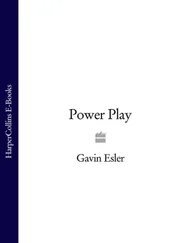So why did Hank Bodine want to know? I had a feeling, based on Cheryl's expression and the way she'd looked at Ali, that there had to be something else going on.
And, of course, I was determined to get to the bottom of that crash. If for no other reason than to figure out what was really going on.
And here was the weird thing: According to one of the reports Zoл had sent me, the E-336 had made maybe twenty test flights before the Paris Air Show. That's the high-altitude equivalent of a new car. When you take delivery of a new car, it's always going to have a few miles on the odometer, from the test drive at the factory to the predelivery inspection at the dealership. Twenty test flights-that was nothing. That was brand-spanking-new.
So there had to be something wrong with the plane, and I knew that the Eurospatiale consortium sure as hell wasn't going to admit it. They'd blame the weather or pilot error or bad karma or whatever they could get away with claiming.
All I could tell from examining the photographs was that the hinges had ripped out of the composite skin of the flap. But why? The hinges were cut into the flap and glued on with a powerful epoxy adhesive. They sure as hell weren't supposed to rip out. After twenty years, maybe. Not after twenty short hops between Paris and London.
For a couple of minutes I stared at the damaged flap, until something itched at the back of my mind. A pattern was starting to emerge. A possible explanation.
I zoomed in as close as I could before the photograph disintegrated into pixels. Yes. At that resolution I could see quite clearly the cracks at the stress concentration points. And the telltale swelling in the composite skin. "Brooming," it was called. It happened when moisture somehow got into the graphite epoxy, which had a nasty habit of absorbing water-sucked it up like a sponge. And that could happen for a number of reasons, none of them good.
Such as a design flaw in the plane itself. Which was the case here, I was convinced.
I knew now why the plane had gone down, and I was certain Hank Bodine wouldn't want to hear the explanation. He'd regret ever asking me to look into it.
Unless…
Unless, say, he already knew the cause and wanted me to find it out for myself. But that was too complex, too convoluted, and I couldn't see any possible logic in that. I wondered whether Cheryl knew more about the crash than she'd let on. Was it possible, I wondered, that she already knew what I'd just found out?
With a sinking feeling, I realized, too, that as much as I wanted to steer clear of the power struggle between Cheryl Tobin and Hank Bodine, I was already deeply embroiled in it.
I went downstairs to find Bodine and tell him what I'd learned.
As I came down the stairs I heard loud voices and raucous laughter emanating from the bar. Hugo Lummis was clutching a tumbler of something brown and seemed to have a real buzz on. He was talking to a guy I recognized as Upton Barlow, the chief of Hammond's Defense Division. Barlow was tall, with sloped shoulders, looked like an athlete. Deep lines were etched around his mouth, a stack of parallel lines carved into his forehead. He had receding gray hair, little black eyes like raisins, a pursed mouth.
The two of them seemed to be trading travel horror stories. They were both members of the million-mile frequent flyer club, and it sounded like they didn't much like Europeans.
"Ever notice the crappy plastic toilet seats?" Lummis was saying. "Even in the good hotels? And the weird way they flush, like with metal plates on the wall or whatever?"
"No, it's the showers that are the worst," Barlow put in. "They're made for midgets."
I looked around the huge main room, saw Geoff Latimer sitting by himself in a big overstuffed chair, reading the Wall Street Journal. I didn't see Hank Bodine, though, or Clive Rylance.
"Good luck finding an ice machine in your hotel," Lummis said. "Ask for Coke and you get it as warm as a bucket of spit. Must be some European Union law against ice."
"You can't even watch the news in your hotel room," Barlow said. "You put on CNN, and it's all different. You get, like, a forty-five-minute report on Nairobi or Somaliland or something."
I had a feeling the Europeans didn't like them much, either.
"Why don't you join us, fella?" Lummis said to me.
I hesitated for an instant. Having a drink with these old goats was just about the last thing I wanted to do. If Hank Bodine was going to have a talk with Clive Rylance, I should probably find some way to eavesdrop. If they weren't down here, maybe I could find Ali and pretend to introduce myself so I could spend some more time with her.
But then I reminded myself that if I was really going to help Ali uncover evidence about a bribe paid to the Pentagon, the two guys at the bar were exactly who I should be hanging out with. If a bribe had really been made to someone in the Pentagon, it would be surprising if these two didn't know about it. Both of them schemed night and day to sell planes to the Air Force and were willing to do anything to make the sale. If there was a conspiracy, they'd have to be two of the key players.
Upton Barlow picked up on my silence, and said, "Aw, he doesn't want to sit with us old farts."
"Sure, that would be great," I said, walking down the bar and sitting in the stool next to Upton Barlow. I introduced myself.
"I'm sure I've gotten e-mails from you," Barlow said, shaking my hand. "Mike Zorn's assistant, right?"
"That's right." I was surprised he remembered who I was.
"But Mike's not going to be here, is he?"
I started to answer, but Barlow turned away to greet someone else who'd just come down the stairs. It was Clive Rylance, an intense-looking, dark-haired, handsome man who looked as if he'd been carved out of a block of granite. He had an oblong head and a square jaw. He had a heavy beard that he probably had to shave twice a day. He should have been cast in the James Bond movies instead of the guy they have now.
"Well, if it isn't Clive Rylance, international man of mystery," Barlow said.
Rylance put one hand on Hugo's shoulder and, with the other, reached over and shook Barlow's. Actually, they seemed to be trying to crush each other's hands. "Gentlemen," he said.
"Speak for yourself," said Lummis. "You know everyone here, right? Don't know if you've met…Golly, what's your name again?"
"Jake Landry," I said, shaking with Rylance.
"Clive," Rylance said. "So are you a new member of the executive team?"
"Just filling in for Mike Zorn," I said.
"Good," he said. He looked around at the others and laughed. "Phew. I was starting to feel real old there for a second."
"You just fly in from Paris?" said Barlow.
"Yesterday," Rylance said. "I had a dinner in New York last night."
"Oh yeah? Where'd you eat?" Lummis said. I had a feeling Hugo Lummis dined out a lot, judging from his girth.
"Per Se."
"You actually got a table?" Barlow said.
Rylance shrugged. "Come on, man."
"Yeah, what am I saying? If anyone can wangle a reservation, it's you," Barlow said. "So you have that risotto with the truffles from Provence?"
"The Kobe beef with the marrow," Rylance said. "Fantastic."
"I don't know why everyone says it's not as good as French Laundry," Hugo Lummis said. "I think it's even better. But I think we're leaving our friend Jake out of the conversation, aren't we?"
"Not at all," I said. "Never heard of French Laundry, but I'd put it up against Roscoe's House of Chicken 'N Waffles any day."
"Chicken and waffles?" Rylance said, disgusted.
Lummis wheeled his stool around to look at me, and said, "Say, I love that place."
"Admit it," I said, "given a choice between some microscopic piece of beef at that Laundry place and Herb's special at Roscoe's, you wouldn't hesitate, would you?"
Читать дальше
